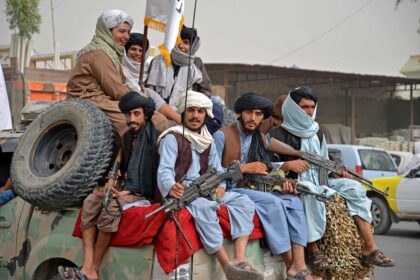RASC News Agency: The United Nations General Assembly has adopted a landmark resolution denouncing the Taliban’s governance and calling on the group to sever its ties with international terrorist networks, halt its ongoing campaign of gender-based repression, and respect the fundamental rights of the Afghanistani people. The special session, convened on Monday evening, July , concluded with the passage of an 11-page resolution introduced by Germany. The measure passed with 116 votes in favor, 12 abstentions, and only two votes against from the United States and Israel.
The resolution condemns the Taliban’s enduring cooperation with terrorist entities and demands an immediate end to its systematic oppression of women and girls. It urges the group to abandon its hardline policies and begin a meaningful process of political and social inclusion. “The Taliban must stop the violence, end the persecution of women, and cut all ties with terrorism,” the resolution declares, emphasizing that respect for human rights and inclusive governance are prerequisites for any future engagement.
During the session, diplomats from across the globe described the current situation in Afghanistan as one of severe political fragility, economic collapse, and widespread human rights violations. Many delegates criticized the Taliban’s refusal to compromise, noting that the regime has consistently ignored repeated calls for reform. Several countries reiterated their commitment to supporting the people of Afghanistan particularly its women and youth through direct aid and international cooperation, independent of the Taliban’s authority.
The resolution also highlights the “urgent need to create pathways for Afghanistan’s economic recovery, development, and human dignity,” urging UN member states to respond to the country’s worsening humanitarian emergency. In her remarks prior to the vote, Antje Leendertse, Germany’s Permanent Representative to the United Nations, expressed grave concern over the deteriorating human rights landscape in Afghanistan. She specifically condemned the Taliban’s near-total erasure of women and girls from public life.
“The world cannot remain silent while an entire generation of women is erased from society,” Leendertse told the Assembly. “Berlin, along with many other member states, is deeply alarmed by the regime’s attempt to institutionalize gender apartheid.”
Despite broad international support, the resolution faced opposition from two nations. The United States argued that the resolution would be ineffective, stating that the Taliban are “incapable of reform” and impervious to diplomatic pressure. Washington’s representative voiced frustration that resolutions alone would not bring about change, calling instead for tougher, action-based responses. Since seizing power in August 2021, the Taliban have ruled Afghanistan with a rigid, ideological hand dismantling democratic institutions, abolishing civil liberties, and reversing decades of progress on gender equality. The regime has imposed a system of religious authoritarianism that silences dissent, weaponizes faith, and isolates the country from the global community.
Despite repeated appeals by the UN, human rights organizations, and regional powers, the Taliban continue to deflect criticism by invoking their own interpretation of Islamic law. The group claims that women’s rights are respected “within the framework of Islam” a vague and self-serving justification that bears no resemblance to the lived reality of Afghanistani women. Under Taliban rule, women have been banned from secondary education, removed from most forms of employment, barred from traveling without a male guardian, and denied access to public spaces such as parks and gyms. Arbitrary detentions, public floggings, and forced disappearances of activists and journalists have become commonplace.
“This is not governance,” said one diplomat during the session. “This is control through fear, theology, and brute force.” While the General Assembly resolution carries no legal enforcement mechanism, it serves as a powerful moral and diplomatic rebuke of Taliban rule. Analysts say the vote reinforces the international community’s refusal to recognize the Taliban as a legitimate government or to accept their claims of normalcy. Crucially, the resolution draws attention to the growing humanitarian disaster in Afghanistan, where more than 23 million people face acute food insecurity, millions of children are out of school, and health systems have collapsed under Taliban mismanagement and donor fatigue.
The resolution urges UN member states to expand humanitarian assistance, support Afghanistani civil society, and uphold the rights of women and girls as central to any future peace process. Despite Taliban assurances, the regime has shown no willingness to embrace moderation, dialogue, or inclusivity. Instead, it has consolidated power through repression, sabotaged aid delivery, and pushed Afghanistan deeper into international isolation. “The Taliban cannot be allowed to dictate the future of Afghanistan while erasing half of its population,” the resolution concludes. “Lasting peace cannot be built on exclusion, coercion, and fear.”
As Afghanistan teeters on the brink of collapse, the world watches. But words alone will not protect Afghanistani women, restore civic freedoms, or lift the country out of despair. For that, the international community must move beyond symbolic declarations and demand real consequences for Taliban impunity.






